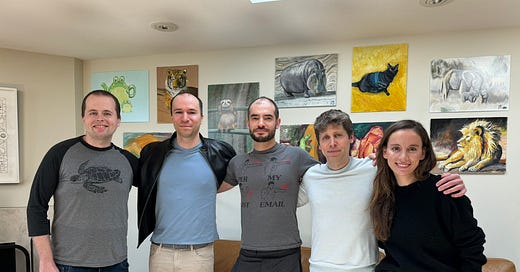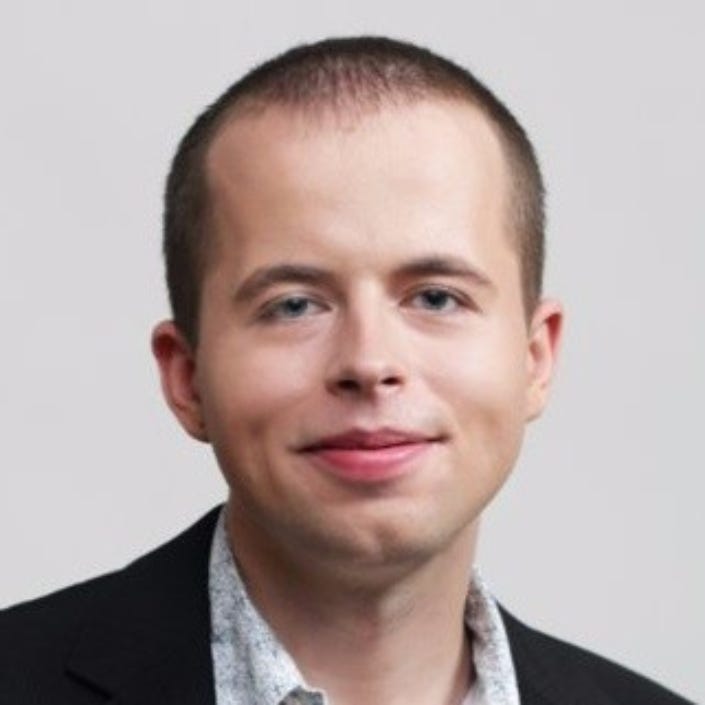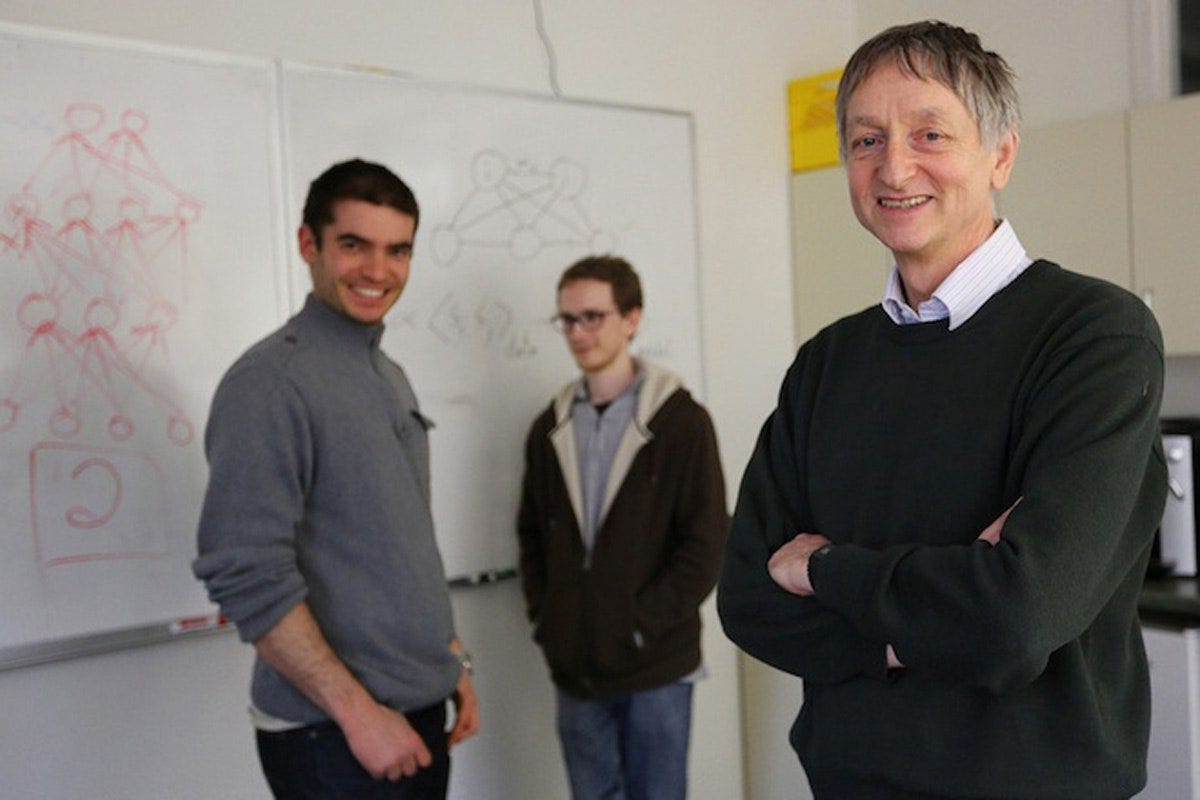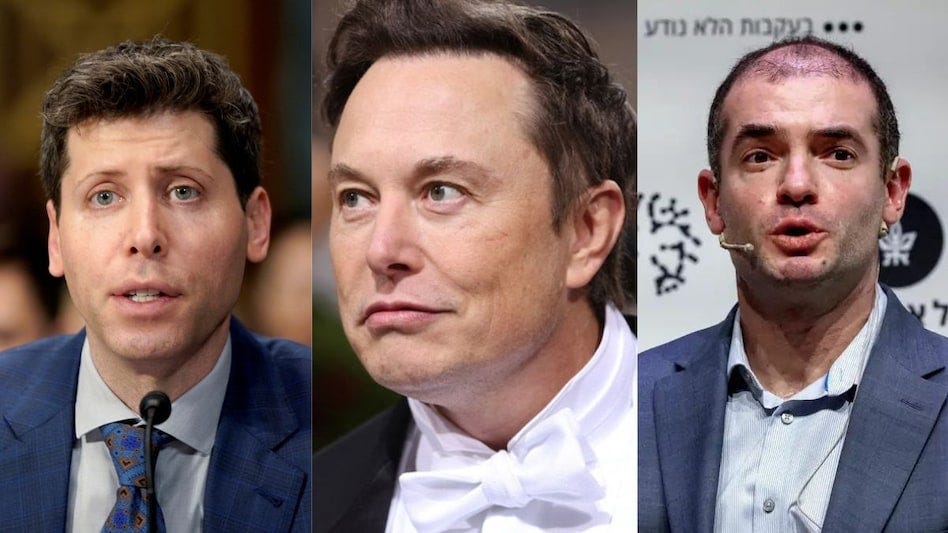Ilya Announces Departure, Superalignment Head Jan Resigns: OpenAI Splits
Ilya Sutskever's Departure: A New Era for AI Begins
Today, OpenAI co-founder and chief scientist Ilya Sutskever announced his departure on Twitter.
"After nearly 10 years at OpenAI, I've decided to leave. OpenAI's progress is amazing. I think it will keep making safe, helpful AGI with leaders like Sam, Greg, Mira, and Jakub.
It has been an honor to work with everyone, and I will miss you all. Thank you for everything. I'm excited about my next project, which is very meaningful to me, and I will share details in due course."
OpenAI CEO Sam Altman expressed his sadness over Ilya's departure on Twitter:
"Ilya is one of the greatest thinkers of our generation, a guiding light in our field, and my close friend. His talent and vision are well-known; his warmth and compassion are less known but just as important.
Without him, OpenAI wouldn't be what it is today. He has a significant personal project to pursue, but I am forever grateful for all he has done here. I am committed to completing the mission we started together. I am glad to have worked closely with such a genius dedicated to a better future for humanity."
Incoming chief scientist Jakub Pachocki also expressed his gratitude to his predecessor, Ilya:
"Ilya introduced me to deep learning research and has been my mentor and collaborator for many years. His vision for deep learning laid the foundation for OpenAI and AI. I am grateful for our many conversations, from high-level AI discussions to technical sessions. Ilya, I will miss working with you."
Jakub Pachocki is OpenAI's new chief scientist. He studied at a big school called Carnegie Mellon. Jakub has been doing research at OpenAI since 2017. He was the boss of research, making smart things like GPT-4 and OpenAI Five, and worked on big projects with learning and computers.
OpenAI stated, "He has played a crucial role in realigning the company's vision to expand deep learning systems."
With this, Ilya Sutskever and OpenAI's eight-year story comes to an end.
Also announcing his departure alongside Ilya is Jan Leike, co-leader of the Superalignment team.
The Superalignment team was formed in July 2023 to "solve the alignment problem by 2027 with OpenAI's vast computing resources."
Now, both are leaving simultaneously, leaving unfinished business. Will Ilya's next steps continue the "Superalignment" mission?
A Tumultuous Childhood and Mentorship Under Hinton
Even without OpenAI, Ilya Sutskever would still be a notable figure in AI history.
Ilya, an Israeli-Canadian, was born in the former Soviet Union. At age five, he moved to Jerusalem, becoming fluent in Russian, Hebrew, and English. In 2002, he moved to Canada.
Ilya started a project at the University of Toronto and worked with Geoffrey Hinton. They made AlexNet in 2012, a smart network for recognizing objects.
Geoffrey, Yann, and Yoshua, big names in deep learning, won a prize in 2018.
When Ilya joined Geoffrey's team, most thought neural networks wouldn't work. But they were wrong.
AlexNet was a big step for deep learning. It showed that big data and computers could teach networks to recognize patterns.
This helped with computer pictures and talking, which is important for things like ChatGPT.
After school, Ilya worked with Andrew Ng and then joined DNNResearch, a company started by Geoffrey.
Google bought DNNResearch and Ilya became a scientist on the Google Brain team.
Jeff Dean said Ilya cares a lot about language and knows what's next.
At Google, Ilya worked on learning word sequences and made new tech with his team.
Joining OpenAI and Leading GPT Development
Ilya Sutskever's interest in language likely drove him to join OpenAI.
In July 2015, Ilya went to a dinner with Sam Altman and met Elon Musk and Greg Brockman. They decided to start OpenAI, a group that doesn't compete and needs the best AI experts.
By the end of 2015, Ilya was OpenAI's research boss. They have top researchers like Ian Goodfellow, Pieter Abbeel, and Andrej Karpathy.
OpenAI got $1 billion from Sam, Elon, Peter Thiel, Microsoft, Y Combinator, and more. They wanted to make AGI, but not many people believed them at first.
OpenAI initially struggled. "At first, I wasn’t sure how we would progress," Ilya said. "But I believed in deep learning. Researchers always found ways to overcome obstacles within six months to a year."
In 2016, OpenAI released its first GPT model. From GPT-2 to GPT-3, the models grew stronger, proving their approach was correct. Each release pushed the limits of what people thought was possible.
However, Ilya revealed that expectations for ChatGPT within the company were low. "When you ask it factual questions, it gives wrong answers. I thought it would be boring, and people would wonder why we made it."
Making GPT models accessible and free showed billions of what OpenAI was building. Before ChatGPT, the underlying model had existed for months.
ChatGPT's success brought unprecedented attention to the founding team.
In 2023, Sam Altman, the boss of OpenAI, traveled around the world. He talked to leaders and spoke to many people in big rooms.
As chief scientist, Ilya stayed low-key and rarely gave interviews. Unlike other founders, he focused more on developing GPT-4.
He wasn’t interested in discussing his personal life: "My life is simple. I go to work, then go home. I don’t do anything else. One can attend many social events, but I don’t."








